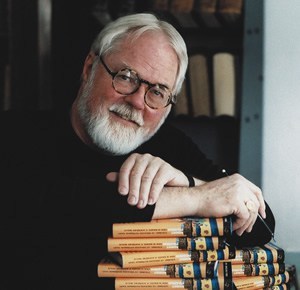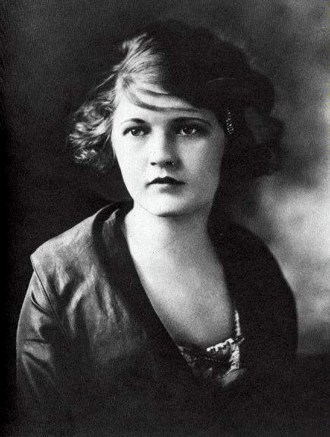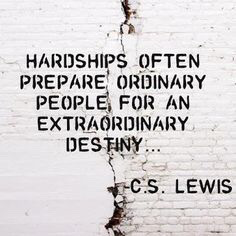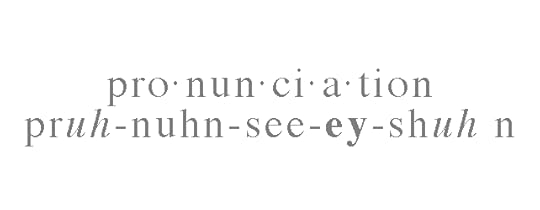Richard Harris's Blog, page 46
October 6, 2016
National Poetry Day
In honour of #NationalPoetryDay, I’m posting what may very well be my favourite poem, William Ernest Henley’s “Invictus.” Latin for “unconquered” (a language not to be confused with what Dan Quayle once remarked: “I was recently on a tour of Latin America, and the only regret I have was that I didn’t study Latin harder in school so I could converse with those people”), Henley wrote the poem in 1875, only to wait 13 years to have it published.
Out of the night that covers me,
Black as the pit from pole to pole,
I thank whatever gods may be
For my unconquerable soul.
In the fell clutch of circumstance
I have not winced nor cried aloud.
Under the bludgeonings of chance
My head is bloody, but unbowed.
Beyond this place of wrath and tears
Looms but the Horror of the shade,
And yet the menace of the years
Finds and shall find me unafraid.
It matters not how strait the gate,
How charged with punishments the scroll,
I am the master of my fate,
I am the captain of my soul.


Quote of the Day
Probably best known for Everything I Really Need to Know I Learned in Kindergarten, Robert Fulghum (b. 1937) is an internationally bestselling author whose 16 million books have been published in 27 countries and in 103 languages. Over his lifetime, Fulghum has published 10 non-fiction works and 3 novels.
Although not his most famous work, Fulghum’s Maybe, Maybe Not does contain one of my favourite quotes from the quirky Unitarian minister.
“Never, ever, regret or apologize for believing that when one man or woman decides to risk addressing the world with truth, the world may stop what it is doing and hear. There is too much evidence to the contrary. When we cease believing this, the music will surely stop. The myth of the impossible dream is more powerful than all the facts of history.”


October 5, 2016
Become a Shelf Monkey
Want to gain some experience, or expand your portfolio, as a book reviewer? ECW Press, an indie publisher based out of Toronto, has a program called Shelf Monkey in which you, the reader, get free books in exchange for writing “honest” reviews of books that fall into your categories of interest.
For those not familiar with ECW, this is a brief intro from their website:
Publishers Weekly recognizes ECW Press as one of the most diversified independent publishers in North America. ECW Press has published close to 1,000 books that are distributed throughout the English-speaking world and translated into dozens of languages
Click here to learn more about the Shelf Monkey program.


The Art of Being Artistically Artistic
Thomas Oppong has some advice for all you go-getters out there who are afraid to dive into that pool otherwise known as creativity. In his piece entitled “Here’s Why You Might Be Afraid to Live a More Creative Life,” Mr. Oppong sums up, quite neatly, what deters many of us from pursuing that creative element he believes is inherent within us all. In five short and sweet bullet points he claims this has to do with:
1. You’re afraid you have no talent.
2. You’re afraid your best work is behind you.
3. You’re afraid of being rejected or criticized.
4. You’re afraid your ideas are not good enough.
5. You’re afraid someone else has done it better.
Apparently “afraid” is le mot de jour here, and everyone who’s pursued a career in any field of creativity – whether painter, PR spin doctor, magician, hair stylist, rocket scientist – knows how hard and bumpy the ride is early on in your career.
On a personal note, I equate flexing that creative muscle and exhibiting your final product in public to taking off your clothes and standing buck naked at a major intersection during rush hour; no doubt it’s going to be hard/embarrassing at first.
However, as someone who’s been in Teddy Roosevelt’s The Man in the Arena for a decade and a half, I can assure you that it does (I promise) get easier over time. Perhaps “easier” is not the right word, but at the very least it becomes less painful.
In the spirit of October baseball fever, an analogy that comes to mind is something Goose Gossage said back in the ’70s when he came in to relief pitch in a huge post-season game and was crappin’ his pantaloons he was so scared. Knees-a-shakin’, he turfed his first couple of pitches before telling himself in a moment of quiet reflection (quiet, of course, being measured against 50,000 people screaming all around you), What’s the worst that can happen? If I drop the ball on this one, I’ll be back home tomorrow at my beautiful house in Colorado.
That’s kind of the same way I look at my own writing all these years on. The worst that can happen is that someone doesn’t like it, but as long as you pour your heart and soul into it, there’s nothing to be scared or ashamed of when showing off your creativity to others. Best case scenario? The world falls in love with what you’ve produced, you make bank on it, become a superstar in your field, and have an A-List Hollywood actor play you in the film version of your life.
Not so bad, me thinks.


Quote of the Day
Who needs a digital camera, iPhone, or Adobe Photoshop when you’ve got slick painters like they did for Blaise Pascal (1623-62) and his I-just-stepped-out-of-a-salon hairdo? Although people tend to groan when you drop names like Plato, Aristotle, Confucius, and Pascal, there’s a reason these guys are still read today. For me, Pascal’s Pensées is truly one of the most profound books I’ve ever read – and easy to read because it’s essentially a bunch of one- and two-sentence philosophical/religious “thoughts.”
There are many excerpts I could pick for today, but in light of the current political climate in the U.S., I felt this one was especially apropos.
“Truth is so obscure in these times, and falsehood so established, that, unless we love the truth, we cannot know it.”


October 4, 2016
Quote of the Day
Today’s quote of the day is from Kate Chopin (1850-1904), an influential 19th-century writer whose novel, “The Awakening,” is now considered an American classic.
“She was becoming herself and daily casting aside that fictitious self which we assume like a garment with which to appear before the world.”


October 3, 2016
Quote of the Day
October 2, 2016
Quit for the Day While You’re Still Ahead
Author of Massive Life Success, and founder of @ProcrastZero, Darius Foroux wrote an interesting piece on when to call it a day when it comes to work called “The Most Important Working Habit Of Hemingway: Stop At The Height of Your Day.” (And not You’ve got to know when to hold ’em/Know when to fold ’em.)
Hem’s mantra applies to everybody who carries out any kind of work – from housecleaning and sending emails to artist projects and entrepreneurial initiatives.
For Mr. Foroux, the lesson to be learned from Ernie H is essentially the following:
“Always stop while you are going good and don’t think about it or worry about it until you start to write the next day. That way your subconscious will work on it all the time. But if you think about it consciously or worry about it you will kill it and your brain will be tired before you start.”
But Papa also had this to pass on when it came to something else we can all relate to: How to stop worrying or getting stressed out day to day. When he’s asked, “How can you learn not to worry?” Hemingway answers:
“By not thinking about it. As soon as you start to think about it stop. Think about something else. You have to learn that.”
There are some other choice nuggets in the piece, but I’ll let Messrs Hemingway and Foroux explain in more detail themselves.


Quote of the Day
From one of my favourite books, this is Kahlil Gibran writing on love and marriage in his opus, The Prophet.
“Give your hearts, but not into each other’s keeping. For only the hand of Life can contain your hearts. And stand together, yet not too near together: For the pillars of the temple stand apart, And the oak tree and the cypress grow not in each other’s shadow.”


October 1, 2016
English Pronunciation and the Shibboleth
The shibboleth is a defining trait of the English language. Defined as “a peculiarity of pronunciation, behavior, mode of dress, etc., that distinguishes a particular class or set of persons,” the word is derived from Hebrew, circa the 14th century, and meant, literally, “ear of grain.” The word shibboleth was used in the Old Testament by the Gileadites as a test word for the Ephraimites, who could not pronounce the sound sh.
Katherine Brooks over at The Huffington Post has penned an interesting piece on a book by Ross and Kathryn Petras called You’re Saying It Wrong, a guide to 150 words that native English speakers pronounce incorrectly on a regular basis.
Examples include acai, chiaroscuro and mischievous.
Back in the day when I was teaching English to Koreans, students would routinely tell me how difficult it was to learn English, to which I would reply, “Seriously? SERIOUSLY? You conjugate verbs AND adjectives in Korean; as opposed to the one conjugation per tense in English, you have more than 20 in Korean; you often drop the subject of a sentence because, of course, it’s “understood”; you actually attach suffixes to the words in your sentences with subject/topic, object and preposition markers, which requires an intimate knowledge of grammar; you have two counting systems (one pure Korean, one Chinese-derived); you mark animate/inanimate counting items with specific suffixes; you distinguish between hoching (the person you’re talking to) and jiching (the person you’re talking about); being vague with your sentences is en vogue; and on and on and on.
The one thing I will say is that while Korean is relatively easy to pronounce for English speakers because of Hangeul’s “scientific” laws (the written portion of the Korean language, Hangeul, is actually the only extant language that was invented), English is an 18-car pile-up that’s been run over by a flaming trainwreck when it comes to pronunciation. Even as a native English speaker who has taught the language and studies linguistics for shigs and gittles, I don’t know how to pronounce certain words correctly.
For all the linguistic masochists out there like me who want to learn more about You’re Saying It Wrong, click here.

















